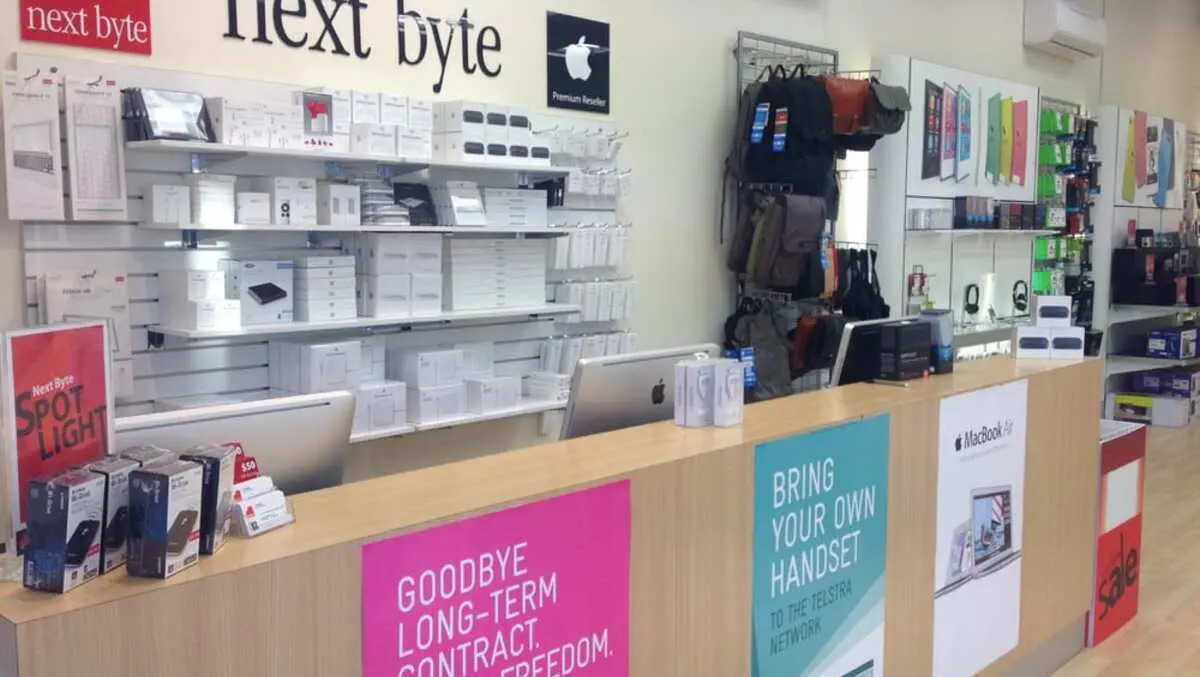In the 1990s, before sleek Apple Stores dominated Australian shopping centres, the heart of the country’s Apple retail experience beat through a chain of independent outlets known as Next Byte. Founded in 1995 in Adelaide by former athlete Adam Steinhardt, the retailer grew from a local computer shop into Apple’s largest premium reseller in Australia – a story of entrepreneurial grit, explosive growth, and eventual obsolescence as Apple’s own retail juggernaut rolled in.
The pole vault
Steinhardt, a Commonwealth Games pole vaulter turned tech entrepreneur, built Next Byte alongside sales veteran Tim Kleeman and chartered accountant Crawford Giles. The trio’s vision was simple yet ambitious: make Apple products accessible to mainstream Australian consumers at a time when Macs were niche computers for designers and educators.
By 1999, Next Byte had 92 staff across Australia and annual revenue nearing $60 million, with stores in Adelaide, Melbourne, Brisbane, Perth, and the Gold Coast. The company’s early success came from its marketing savvy – using multimedia campaigns to present Apple products as aspirational lifestyle tools rather than obscure computing machines.
Buzzle
In 2000, Apple resellers across Australia joined forces to form Buzzle, an ambitious plan to consolidate 24 AppleCentres and potentially go public. Next Byte was slated to be part of the merger but withdrew in the final stages – a decision that proved fateful. Buzzle collapsed less than a year later, dragging down a large portion of Apple’s Australian dealer network. Next Byte survived, stepping into the void as Apple’s key third-party retailer.
Riding the wave
The late 1990s and early 2000s saw Apple’s revival around the Bondi Blue iMac and the iPod revolution. Next Byte was perfectly positioned to ride this wave. By 2005, the company had become synonymous with Apple retail in Australia, often serving as the first touchpoint for consumers new to the Mac ecosystem. Its stores blended technology demos with personable customer service, long before Apple’s own “Genius Bar” concept arrived.
Acquisition
In 2007, Fone Zone Group Limited (now Vita Group) acquired Next Byte for approximately $30 million. At the time, the chain ran 17 stores nationwide and generated annual revenues north of $100 million. The acquisition was meant to diversify Vita Group’s business beyond its Telstra dealership roots, but integrating a consumer electronics chain proved challenging.
By 2012, Vita Group attempted an overhaul – refurbishing Next Byte stores to mirror Apple’s own clean retail aesthetic. The outlets were rebranded as Apple Premium Resellers and relocated away from official Apple Store competition. The idea was to turn Next Byte into “regional geographic fill-ins” for Apple – effectively serving markets without direct Apple presence. But with shrinking margins and growing consumer preference for Apple’s flagship stores, the strategy faltered.
The slow fade
By 2015, Vita Group conceded defeat. Falling sales and recurring impairment charges forced the company to wind down the brand. The closure of the final eight stores in early 2016 marked the end of an era. Vita Group incurred one-off costs of $3.2 million but anticipated annual savings of $1.6 million after exiting the business.
“Next Byte underperformed as Apple expanded its own retail footprint in Australia,” Vita Group said in a 2015 statement. “Competing directly with Apple was unsustainable”.
Adam Steinhardt’s legacy
Although Steinhardt left the company in 2005, his influence continued to resonate. Drawing on the same energy that once drove his athletic career, he went on to co-found The Kingdom, an Adelaide-based digital marketing agency and HubSpot platinum partner. Steinhardt passed away in early 2025, aged 55, leaving behind a legacy as a bold businessman.

